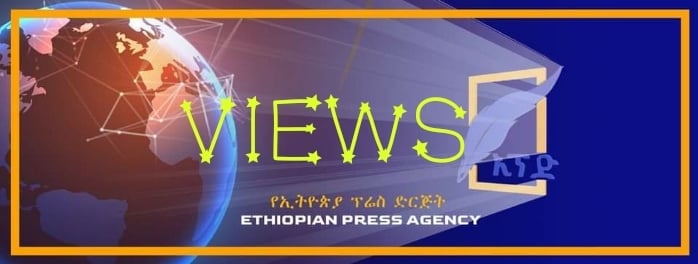
BY ALMARIAM
PART ONE
My submission for third article of impeachment alleging commission of impeachable offenses by Antony Blinken: “Antony Blinken, as U.S. Secretary of State has and continues to provide material diplomatic support to a foreign terrorist organization, namely the Tigray People’s Liberation Front (TPLF) in violation of 8 U.S.C. § 1182 (B) (i) (bb), (iv); 18 USC 2339 (B) (a) (1); (d) (E); (2); 18 USC § 2339A and therefore should be impeached by the House of Representatives and convicted by the U.S. Senate.” Reed more below Impeach and convict Blinken and passing the buck stops!
On August 16, 2021, President Joe Biden trying to explain the catastrophic Afghanistan withdrawal declared, “I am the president of the United States, the buck stops with me.”
Impeach and convict Blinken and passing the buck stops!
In my August 22, 2021 commentary “DUMP ANTONY BLINKEN BECAUSE HE IS “UNQUALIFIED” AND “DANGEROUS TO AMERICA” (AND TO ETHIOPIA)!”, I argued Antony Blinken should resign or be removed from office for gross incompetence and gross dereliction of duty.
It was my great pleasure to see five days later on August 27, 2021 that Republican House Representatives Andy Harris of Maryland and Ralph Norman of South Carolina had introduced a Resolution to impeach Antony Blinken and remove him from the office of U.S. secretary of State for, among other things, gross incompetence and dereliction of duty.
“Impeachment” is an American constitutional process and procedure for the removal of the “President, Vice President and all civil Officers of the United States” from office in a two-stage process.
In the first stage, the House of Representatives undertakes an investigation into the alleged impeachable offenses of the president or civil officer of the U.S. and passes a resolution of Articles of Impeachment by a simple majority vote formally leveling charges. The Articles are the equivalent of a grand jury indictment (criminal charges) making potentially provable allegations of impeachable offenses (which upon conviction result only in removal from office).
In the second stage, the U.S. Senate holds a “trial” on the House Articles of Impeachment. The “trial” is unlike a criminal trial where the defendant enjoys substantial procedural due process protections. In an impeachment trial, the Senate sits as a “High Court of Impeachment to consider evidence, hear witnesses, and vote to acquit or convict the impeached official.” If two-thirds of the Senate votes to “convict” (finds the House Articles sustained), the impeached (accused) official is removed from office and disqualified from holding any U.S. office in the future. An impeachment conviction by itself does not result in criminal conviction.
Article II, Section 4 of the U.S. Constitution specifically provides: “The President, Vice President and all civil Officers of the United States, shall be removed from Office on Impeachment for, and Conviction of, Treason, Bribery, or other high Crimes and Misdemeanors. Article I, section 2 provides, “The House of Representatives shall… have the sole Power of Impeachment.”
Article I, section 3 provides, “The Senate shall have the sole Power to try all Impeachments” and the outcome of conviction is “removal from Office and disqualification to hold any Office under the United States…”
Can Antony Blinken be impeached and convicted under Article II, Section 4 of the U.S. Constitution?
In American history, there have been 20 “presidents and U.S. officers” who have been impeached (9 accused but not convicted in the Senate; 8 convicted and removed from office and 3 who resigned before impeachment proceedings were completed) including President Donald Trump twice.
There are two central constitutional questions relevant to the impeachment of Antony Blinken:
1) Is Blinken a “civil officer” within the meaning of Art. II, sec. 4?
2) Did Blinken commit acts or omitted to act within the meaning of the “Treason, Bribery, or other high Crimes and Misdemeanors” clause of Art. II, sec. 4?
While the impeachment clauses of the Constitution are clear about the “President and Vice President”, the “civil officers” clause is undefined.
However, there is clear practice and precedent in the U.S. House of Representatives that a high-level executive officer may be a proper subject of an impeachment proceeding.
On March 2, 1876, the Committee on Expenditures in the War Department of the House of Representatives submitted a resolution (pp. 902-947) “That William W. Belknap, late Secretary of War, be impeached of high crimes and misdemeanors…”
The House drafted five detailed articles of impeachment against Belknap charging him with “high crimes and misdemeanors while in office.” It is important to note that impeachment is a rarely used constitutional mechanism of removal from office.
If the Secretary of War can be impeached in 1876, there is no reason why the Secretary of State cannot be impeached in 2021.
In Federalist Papers (the most authoritative primary source of interpretation of the Constitution) No. 66, Alexander Hamilton, one of the framers of the U.S. Constitution explaining impeachment powers argued for the necessity of an impeachment trial in the Senate as a check to hold the executive branch accountable.
The U.S. Supreme Court in 1997 (pp. 662-663) has also made the constitutional distinction between “civil officers” appointed by the president and confirmed by the Senate and “Inferior officers” appointed without the necessity of Senate confirmation.
Specifically referring to the State Department, the Supreme Court explained: “On July 27, 1789, Congress established the first Executive department, the Department of Foreign Affairs. In so doing, it expressly designated the Secretary of the Department as a “principal officer,” and his subordinate, the Chief Clerk of the Department, as an “inferior officer”.
There is no question Antony Blinken as the “principal officer” of the State Department is a “civil officer” within the meaning of Art. 2, Sec. 4.
Antony Blinken can be subject to an impeachment investigation by the House of Representatives and brought to trial on Articles of Impeachment in the U.S. Senate.
The Norman-Harris House impeachment case against Blinken- The evidence The second question is whether Blinken committed impeachable offenses.
Has Blinken committed or failed to commit acts that amount to “Treason, Bribery, or other high Crimes and Misdemeanors” under Art. II, Sec. 4?
There is a divergence of legal and scholarly opinion on acts and omissions by “U.S. civil officers” constituting impeachable offenses under Art. II, Sec, 4.
The Norman- Harris resolution lays out a substantial body of facts and compelling legal theories in support of the two allegations of impeachment.
The crux of the Norman- Harris impeachment resolution revolves around three statutory provisions.
The three allegations of impeachment essentially allege Blinken in the Afghanistan withdrawal
• engaged in gross dereliction of duty;
• performed his duties with gross incompetence bordering on criminal negligence;
• exhibited depraved indifference to the lives of American citizens and servicemen and women;
• failed to undertake due diligence and exercise reasonable care in the evacuation process resulting in inexcusable chaos;
• callously disregarded` his statutory duty of informing the Congress and the American people in a timely manner of problems and issues involving the withdrawal and knowingly providing false assurances knowingly or in reckless disregard for the truth;
• Recklessly abandoned American military equipment, property and weapons to the enemy; and engaged in inexcusable and willful disregard of credible intelligence information and data on enemy actions resulting in great harm to U.S. citizens and service men and women.
NORMAN-HARRIS IMPEACHMENT ALLEGATION I
The Norman-Harris resolution alleges
1) violation of 22 U.S.C. 7 4802(b) which details the responsibilities of the Secretary of State in maintaining security and protective operations in U.S. missions abroad;
2) violation of 22 U.S. Code § 2715 which provides, “In the case of a major disaster or incident abroad which affects the health and safety of citizens of the United States residing or traveling abroad, the Secretary of State shall provide prompt and thorough notification of all appropriate information concerning such disaster or incident and its effect on United States citizens to the next-of-kin of such individuals.”
3) violation of 22 U.S.C. 2680(b) by failing to inform the “Committee on Foreign Relations of the Senate and the Committee on Foreign Affairs of the House of Representatives fully and currently informed with respect to all activities and responsibilities within the jurisdiction of these committees.”
Allegation I of the Norman -Harris impeachment resolution factually alleges Blinken as Secretary of State “engaged in a pattern of conduct that is incompatible with his duties as an Officer of the United States”.
Blinken “failed to faithfully uphold his oath and has instead presided over a reckless abandon of our nation’s interests, security, and values in his role in the withdrawal of American forces and diplomatic assets from Afghanistan.”
Blinken failed to undertake due diligence in the safe and orderly withdrawal of American citizens and troops from Afghanistan. Specifically, Blinken knew on April 14, 2021, that the U.S. was scheduled to begin withdrawing from Afghanistan starting May 1, 2021, and that the removal of troops would be completed by September 11, 2021 but failed to make adequate preparations.
Blinken failed to keep the American Embassy safe and operational by failing to recognize dangers posed by a resurgent Taliban and in flagrant disregard of credible intelligence.
Blinken failed to make adequate preparations in vacating Bagram Air Base and proper security for the on-site prison on site housing over 5,000 Taliban and suspected terrorist prisoners who are ready, able and willing to harm U.S. citizens and interests.
Blinken failed to manage an orderly evacuation left Taliban and other terrorists as well as significant stockpiles of American weapons and equipment unguarded resulting in the eventual liberation of prisoners and seizure of weapons and equipment by Taliban forces.
The Ethiopian Herald August 31/2021





